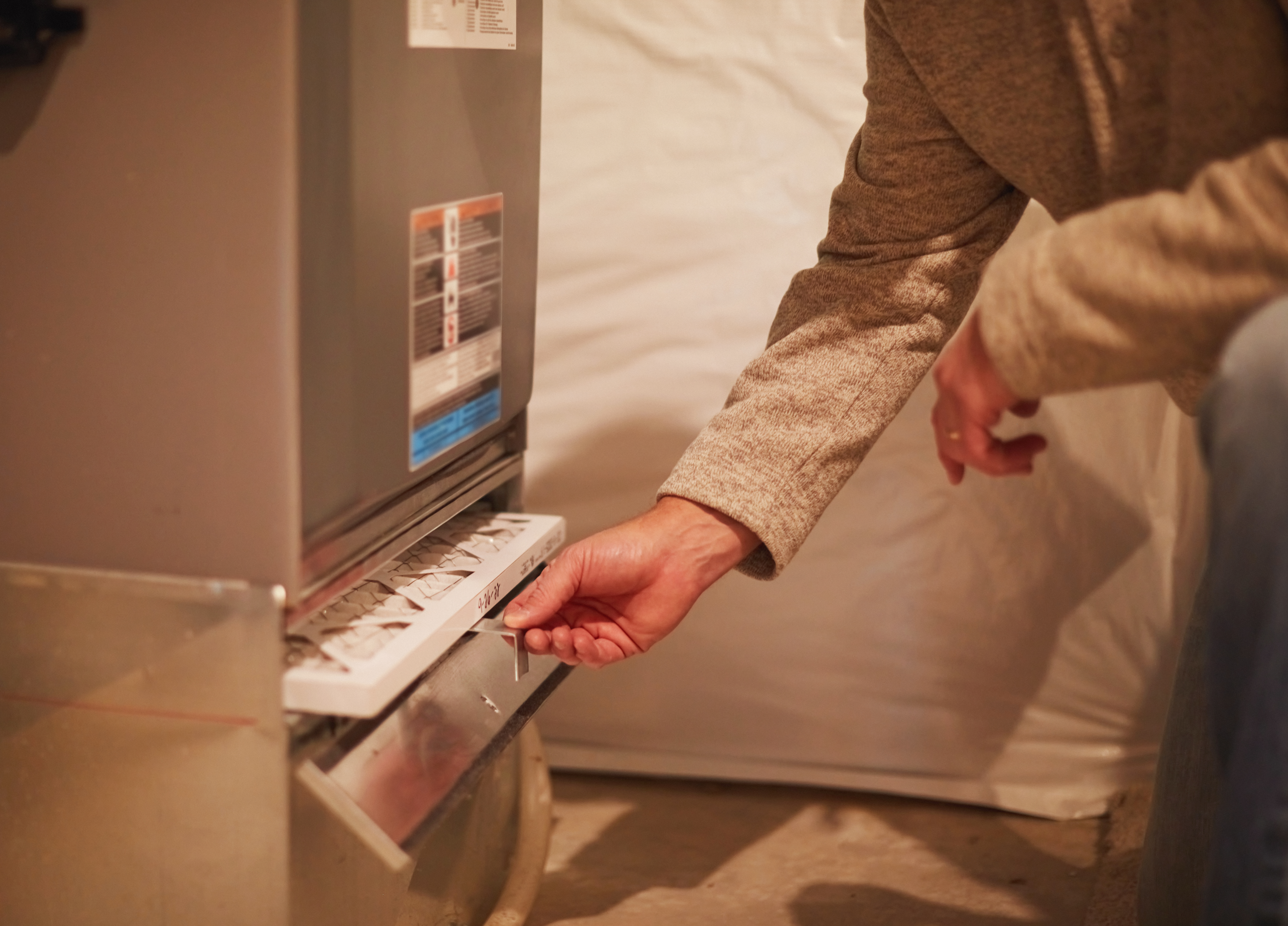Boilers and furnaces are both effective at keeping your home warm and comfortable in the winter, but they’re also very different. Boilers work to provide radiant heating whereas furnaces provide forced-air heating. Comparing the two can be difficult, but this guide will explain everything you need to know when deciding whether a boiler or a furnace is the better choice for your home.
Evaluating Your Home and Existing Heating System
If you’re building a new home, you have the option to choose either a radiant heating system with a boiler or a forced-air system with a furnace. If you’re looking to replace or upgrade your existing heating system, you’ll usually want to stick with whatever type of system you currently have unless you’re also planning on totally renovating your home.
There are times when you can switch between the two, but it usually doesn’t make sense as the cost of doing so can be far greater than simply replacing your existing furnace or boiler. The one exception is if you currently have radiant heating but your home also has ductwork for central air conditioning. In this case, you could easily switch to forced-air heating as long as there is sufficient room to install the furnace. Otherwise, installing a new duct system would require extensive renovations, and that is if there is even room to run all of the ducts.
If you want to switch from forced air to radiant heating, you will need to run the hot water lines throughout the house and install radiators in every room. If you wanted to install underfloor radiant heating instead of radiators, you would need to tear up and then replace the floors in every room that you wanted radiant heat.
Forced-Air vs. Radiant Heating
Forced air and radiant heating work in completely different ways. In a forced-air system, the blower draws cool air in through the return vents and ducts. The heat exchanger in the furnace then transfers heat to the cool air to make it much hotter, and the blower moves the heated air through the supply ducts where it then flows out of the vents in all of the rooms.
Radiant heating works differently as it doesn’t directly heat the cooler air inside the home. Also known as a hydronic heating system, a boiler produces both radiant and convective heat. Convective heating results when a hot liquid (water) or gas (steam) flows through or past a colder surface or object. In a radiant heating system, the boiler supplies hot water or steam that flows through either radiators or underfloor heating coils. When the system is running, heat flows out of the hot water or steam and produces convective heating that makes the radiators or floors hot. All of the heat then radiates out from the radiators or floors and gives off radiant heat that raises the temperature of the surrounding air and also heats any nearby objects like the walls and furniture.
Comparing the Effectiveness of Forced-Air and Radiant Heating
The fact that forced-air and radiant heating work so differently means that comparing the effectiveness of the two is a little like trying to compare apples and oranges. Furnaces and forced-air heating systems are more effective in the sense that they produce more heat and will raise the temperature in the home more quickly. Radiant heating works more slowly so it will take this type of system a lot longer to fully heat a cool home. However, you could also say that radiant heating is more effective in that it more thoroughly heats the entire space instead of just making the air warmer.
With a forced-air system, the air temperature will quickly start to cool down once the furnace shuts off. This means that the temperature will continually fluctuate between warmer and cooler. Since radiant heating raises the temperature of the walls, floors, and furnishings, the space will stay much warmer for longer since heat will continually radiate out of all of the surfaces into the air even when the system isn’t currently running.
Comparing Energy Usage
Comparing the energy usage of boilers and furnaces is much easier. Radiant heating systems are much more efficient and use less energy. The reason is again because they will keep the space warmer for longer and continue releasing heat for quite some time after the boiler shuts off.
Although it takes more energy to raise the temperature of water than it does to heat air, boilers still use less energy overall. This is because water is a much more efficient conductor of heat than air, which means it both heats up more quickly and holds onto heat much better. On average, radiant heating will cost around 20 to 30% less to operate than a forced-air system. This is because radiant heating will keep the home more consistently warm so that the temperature doesn’t fluctuate as much, which means that a boiler won’t have to run nearly as often as a furnace.
Another reason that radiant heating systems use less energy is that they allow you to only heat the parts of the home that currently need it instead of having to heat the entire house at once like you do with forced-air heating. Most radiant systems are set up so that there are separate zones for different rooms or parts of the house. This means that you can shut off the radiators or close the zone valves so that the hot water or steam doesn’t flow to that room or zone, which means the boiler will run even less often. Not only will this further reduce your heating costs, but it also allows you to easily adjust and control the temperature in each room or zone accordingly.
Upfront Costs
The cost to install a furnace and full forced-air heating system will usually be around 50% less than installing a boiler and full radiant heating system. If you’re looking to install underfloor radiant heating, the cost could be as much as 10 times higher per square foot.
Life Expectancy and Maintenance Requirements
Radiant heating systems are more complex, which means that they can cost more to repair. However, this is offset by the fact that boilers will usually last much longer than furnaces and also need much less maintenance. A new boiler will usually last for 20 to 30 years, whereas the average lifespan of a furnace is typically only around 15 years.
Other Factors to Consider
Another area where radiant heating has a major advantage is that it works almost silently. While you may still hear the boiler run, it won’t be as loud as the furnace. With a forced-air system, you’ll also hear the noise from the blower whenever the system is heating.
Radiant heating systems are also much better in terms of indoor air quality. Whenever a forced-air system runs, it will continually circulate lots of dust, allergen, and airborne pollutants around the house. This isn’t an issue with radiant heating systems since they don’t move air.
Your Local Heating Experts
Aurora Pro Services Heating, Air, Plumbing, Electrical, & Roofing is the company to trust for all of your heating needs in Greensboro or the Triad area. We install both radiant and forced-air heating systems, and our team can also take care of all of your boiler or furnace repair and maintenance needs. We also install and service central air conditioning systems and our team can handle all of your plumbing, electrical, and roofing needs as well. If you’re still unsure whether a boiler or furnace is the better choice for your home, give us a call and we’ll be happy to answer any questions you have.






